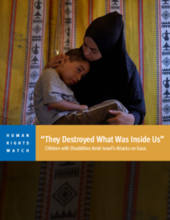Demographic Data
|
Sources: World Bank, UNICEF, UNDP HDR 2015, DHS 2013 |
Displaying 71 - 80 of 14551
The Transitioning Residential Care Working Group, part of the Transforming Children’s Care Collaborative, launched the Divesting of Residential Care Guidelines and the Transition Monitoring Tool for practitioners, advocates, organization
Join Changemakers for Children to launch the first ever Global Kinship Care Week, which will run from 7th - 13th October 2024. Sign up for the webinar What is Kinship Care? Introducing Global Kinship Care Week on 2 October at 10:00 UTC
The Transitioning Residential Care Working Group, part of the Transforming Children’s Care Collaborative, invites practitioners, advocates, organizations, and donors supporting and promoting residential care service transitions to the launch webinar of the Divesting of Residential Care Guidelines and Transition Monitoring Tool.
This kinship care practice guidance was developed by listening to children's views. It is a practical guide to listening to children living in kinship families to help ensure that their voices and views are heard and acted upon. It is intended primarily for those who support children and families in kinship care arrangements, but it also applies to other areas of child welfare practice.
The India Alternative Care Network hosted this webinar on kinship care in Africa on October 1, 2024.
Join this interactive webinar hosted by India Alternative Care Network (IACN) on October 1, 2024.
This IOM report reveals that there are more than 700,000 people currently displaced within Haiti, 52% of whom are children. Haiti is experiencing an unprecedented crisis that has affected the entire population, including the many orphanages operating there.
Concerns have been raised after it emerged that the PSNI has visited children’s homes on more than 5,000 occasions in the past 12 months and made almost 300 arrests.
This Human Rights Watch report documents how children with disabilities in Gaza face dangerous situations and additional difficulties as they struggle to comply with frequent evacuation orders and a lack of effective advance warning of attacks.




